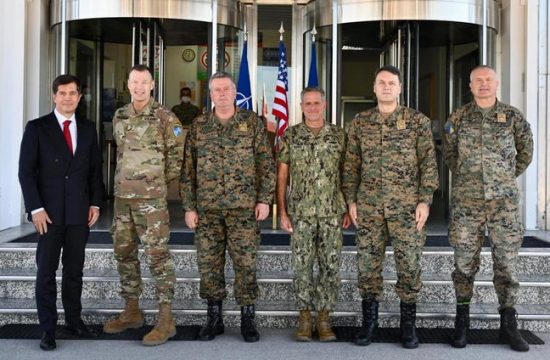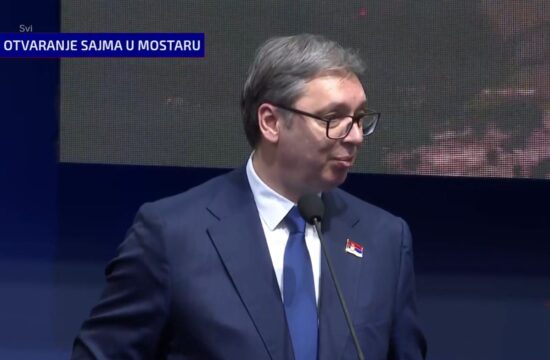
The plaque with the name of Radovan Karadzic, convicted war criminal, was misused and has to be removed from the student dormitory in Pale because it was made meaningless, claims Sonja Karadzic, the daughter and MP in Bosnia’s Serb-dominated entity’s assembly.
The statement comes days after the UN Security Council members condemned glorification of war criminals in Bosnia and after International Community’s envoy in Bosnia, Valentin Inzko, who oversees the Dayton Peace Agreement implementation called for law changes that would precede the removal of the plaque.
If the law changes that would ban the genocide denial and glorification of war criminals are not adopted, and if consequently the dormitory in Pale (Sarajevo's neighbouring town dominated by the Serb population) was not renamed, Dodik might face sanctions, Inzko also warned.
Bosnian Serb leader, Milorad Dodik, who installed the plaque called Inzko to join him and that they remove the plaque together but the diplomat responded: the one who unveiled it should also remove it.
“It is unbelievable that nearly five years after it was put up there, the plaque is getting so much political weight and importance. The fact that the decision to put up the plaque was made by all relevant factors in political and academic communities. The family members were invited to attend the event, but we were then exposed to insults by one part of the public,” said Karadzic, adding that the name of his father is being used for “political bickering” and that the family suffers the consequences.
“If it cannot be there for respect, then it shouldn’t be there for the spite either. I hope that the removal of the plaque will put an end on the daily political clashes and abuse of the name,” underlined Karadzic.
The student dormitory officially opened on March 20, 2016, by Milorad Dodik who was then the prime minister of Bosnia’s Republika Srpska, Serb-majority entity.
The dormitory was named after Karadzic, who was sentenced in the first-instance verdict before a UN tribunal to 40 years in prison, for genocide and crimes against humanity during the 1992-95 war in Bosnia and Herzegovina.
On March 20, 2019, Karadzic was sentenced to life in prison.




